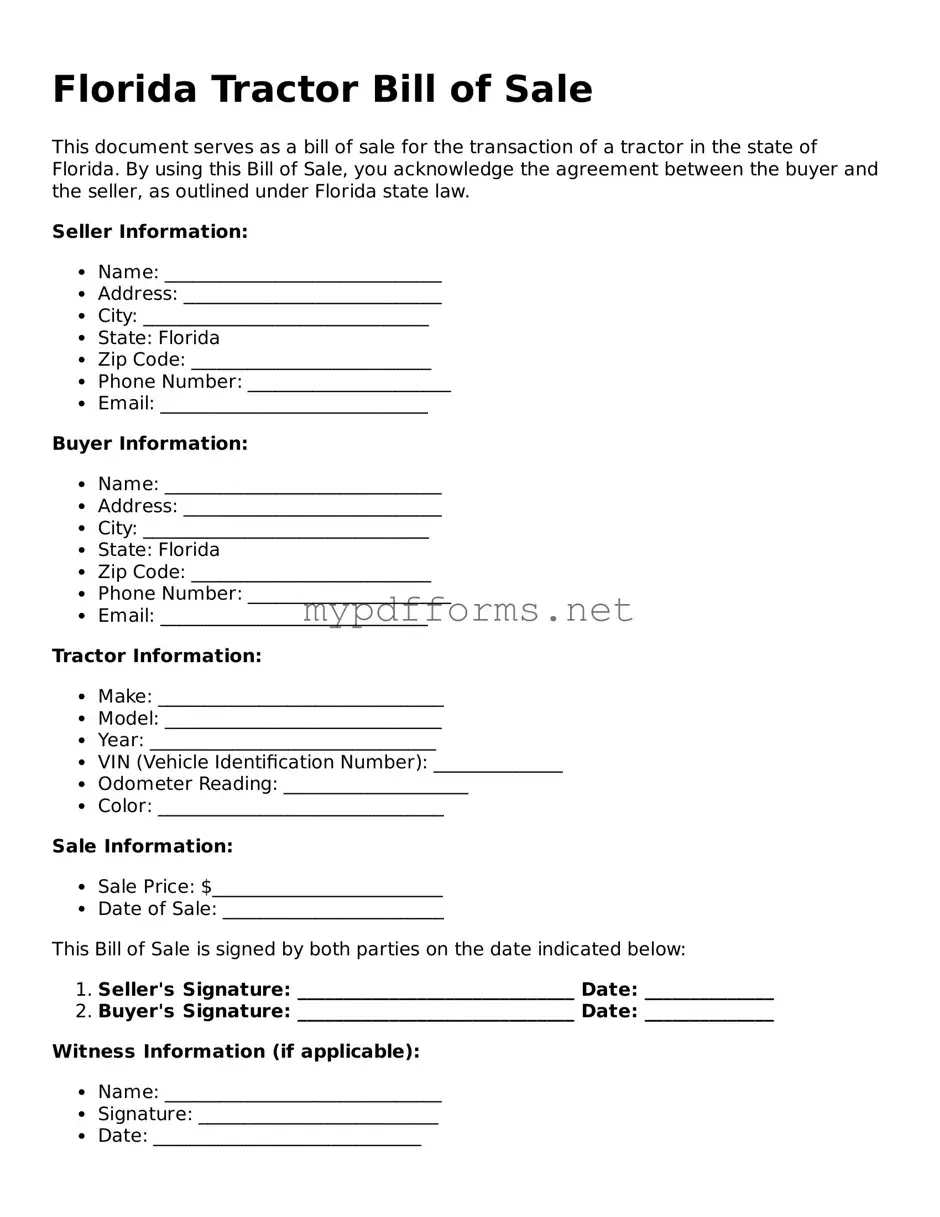Attorney-Verified Tractor Bill of Sale Document for Florida
The Florida Tractor Bill of Sale is a legal document that serves as proof of the sale and transfer of ownership of a tractor between a buyer and a seller in the state of Florida. This form outlines essential details such as the purchase price, the tractor's specifications, and the parties involved in the transaction. For those looking to complete this process smoothly, filling out the form is a crucial step—click the button below to get started.
Modify Document Here

Attorney-Verified Tractor Bill of Sale Document for Florida
Modify Document Here

Modify Document Here
or
⇓ PDF
Need to check this off quickly?
Edit and complete Tractor Bill of Sale online in just a few steps.